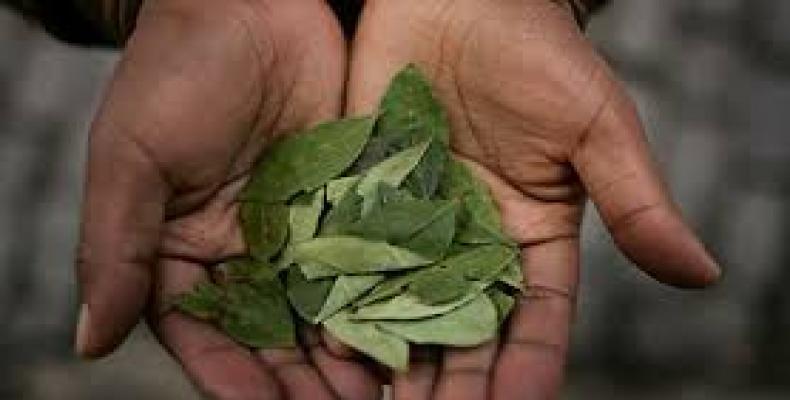Bogota, February 20 (RHC)-- Colombia has announced that 10,000 families that have abandoned coca cultivation will be granted land titles in the country’s southwest region as part of the transition to peace and as a way to support the rural economy.
Miguel Samper, director of the National Land Agency, told reporters that the government of Juan Manuel Santos planned to give land titles to families where land would be regulated and legalized for those who abandoned the illegal crops that helped fuel the armed conflict and organized crime for decades.
While peace was signed last year between the Colombian government and the Revolutionary Armed Forces of Colombia, or FARC, a key challenge of transitioning to lasting peace has been cutting down the cultivation of illegal crops and helping to develop legal economic alternatives for rural Colombians who grow them.
The program is to take place in the three southern departments of Cauca, Nariño and Putumayo, where around half of Colombia’s coca is estimated to be grown. Coca is the primary base for manufacturing cocaine and has been the main source of income for many rural families around the country.
Samper added that land legalization and giving out land titles “is absolutely fundamental not only in the face of life post-conflict, but also in order to reactivate the countryside as a motor of the national economy.” Samper said that six out of 10 rural families do not legally own the land that they work on.
Last month, the FARC and the government struck a deal to start a crop eradication and substitution program where 50,000 hectares of land will become free of coca this year.
10,000 Colombian Families Given Land for Abandoning Coca Crops

Articles en relation
Commentaires
Laissez un commentaire
Tous les champs sont requis
En reproduction maintenant
Memorias Culturales
Au suivant
- Boletín
- De Cuba un Disco
- La Cultura en Cuba
Plus de visites
- Les États-Unis annoncent des restrictions en matière de visas liées à la coopération médicale internationale de Cuba
- Cuba : les migrants à Guantanamo sont une provocation et un affront à la souveraineté (+Photos)
- Le chanteur populaire Paulo F.G. meurt dans un accident de voiture à La Havane
- Le gouvernement cubain condamne les intentions des États-Unis concernant la base navale de Guantanamo
- Washington révoque la licence accordée à Chevron, "une décision nuisible et d'inexplicable"

